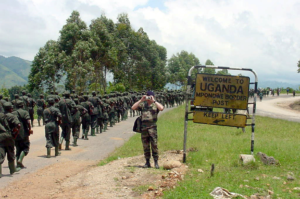For the families pressing relentlessly for the release of their loved ones taken hostage, moving forward is a contradiction.
Within just weeks of Oct. 7, the outraged attention of much of the world shifted from what had happened to Israel to what Israel was doing. A deep chasm opened between those who remained primarily consumed by the greatest loss of Jewish lives since the Holocaust, and those focused on the tens of thousands of deaths that have resulted from Israel’s thunderous military assault on the Gaza Strip.
No one person can bridge that gap. But Rachel Goldberg-Polin makes it seem at least possible.
“People don’t seem to be able to hold two truths,” says Goldberg-Polin, whose son Hersh was badly wounded on Oct. 7, then carried into Gaza as a hostage. “People feel that you either can be worried about the innocent civilians in Gaza, or you can be worried about the 133 hostages. The truth is the 133 hostages are also some of the civilians who are innocent in Gaza. Of the thousands and thousands and thousands of innocent civilians in Gaza, I know one of them. Really well.”
On the 2024 TIME100 list of the world’s most influential people, Goldberg-Polin represents the families pressing relentlessly for the release of their loved ones—the only human beings who have experienced the wrath of both sides in the Gaza War. Within Israel, the families hold a special place. Abroad, Goldberg-Polin seems to function as their ambassador, a Chicago-raised, kosher-keeping Israeli-American dual citizen with a full schedule and a gift for metaphor.
“It’s as if it’s October 8” in Israel, she says. “It cannot move forward. The country is in such reeling. I cannot digest that Passover is next week. And it’s actually perverse to even start to think about the holiday of freedom from captivity. I just said today, and I was not kidding, ‘Is there a way could I find any doctor that could put me in an induced coma for the week?’ Like, I don’t want to be conscious. It will be so acutely painful.”
To “How are you?” she replies, “I’m shitty.” On an April 16 video call from Jerusalem, where she and her husband, Jonathan, have lived since 2008, she wears a white T-shirt with the number 193 written on a piece of masking tape—the number of days Hersh and the others have been in captivity. Since she started wearing it, on day 26, hundreds of thousands of people have done the same, updating the tape every day. “You know, when you wear the same thing, people can get comfortable with it,” she say. “This makes people very uncomfortable. It’s in your face saying for 193 days you’ve allowed 133 human beings from 25 different countries; who are Muslim, Jewish, Christian, Buddhist, and Hindu; who range in age 86 years—you’ve allowed them to stay underground suffering.
“But,” she adds, “in many ways, it’s a ‘Hello, My name is..’ because this is my identity. It is absolutely my identity.”
This is how she talks, though with an energy in counterpoint to the weight of her words. There’s a vibrant, almost bemused animation to Goldberg-Polin. Some of it is clearly just who she is. And some of it may rise from the constant dissonance of her existence since her last glimpse of her son, on a cell phone video, a tourniquet on his left arm, which had been severed below the elbow by the terrorist attack.
“I have a branding iron on my back at all times of day and I have to pretend to be human,” she says. “Every morning I wake up and I put on this costume that is fairly convincing, so that I can talk to important people.” She’s met the Pope, visited the White House, addressed the U.N. “What I want to do when I wake up is lie on the floor curled up in the fetal position weeping, but it’s not going to help save him and it’s not going to help save them. So I have to don this ridiculous costume and spray-on strength that’s completely fake. And I have to walk through this all-the time-mare. It’s not a nightmare. It’s not a daymare. It’s an every-single-second-mare.”
In six months, she has grown intimate with her torment. Goldberg-Polin notes that every life has trauma. “Maybe the sudden death of a loved one, or maybe someone coming home one day and saying, ‘Honey, I want a divorce.’” Whatever it is, it hits you like a truck, and leaves you flat.
“But the thing is,” she says, “at a certain point you decide, when am I going to try to sit up? When am I going to try to stand and take my first step incorporating this new reality that is part of my life? The problem with what we hostage families are experiencing is, the truck is still on our chest. And so what we’re trying to do is not move in such a way that our rib cage collapses and the truck crushes us to death. And so we’re in a very different place.”
At the moment, all eyes are on Israel’s suddenly direct conflict with Iran. Her husband, Jon, has suggested that, rather than retaliate against Iran for its April 13 attack, Israel use it as leverage to release the hostages. Goldberg-Polin—who on Oct. 10, after not sleeping for three days, was prescribed sleep aids that she describes as “horse pills”—slept through the sirens that announced the missiles and drones from Iran. One of Hersh’s sisters guided her into the safe room. “And we heard two massive explosions. What sounded like it was right outside but I think it was hundreds of kilometers away. But you hear these booms and I didn’t feel scared at all, because you know what? I’ve been so f–king scared at all times. It’s like when you come around a corner and you weren’t expecting someone and you go like, ‘Oh my gosh!’ and your heart does that thing? It’s been that way for 193 days. The only thing I thought is fine, you want to kill me? Kill me.
“But then I felt bad because when Hersh comes home, he’s going to need his mother.”




